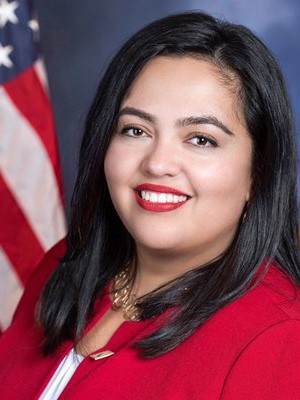2020-12
Encouraging HIV Detection and Ensuring Appropriate Treatments in Medicaid Recipients and the Uninsured

Assemblymember Wendy Carrillo (CA), sponsor
Sponsored by Assemblymember Wendy Carrillo (CA)
Ratified by the Caucus on December 11, 2020
WHEREAS, in 2018, an estimated 37,968 Americans tested newly positive for HIV;[1] and,
WHEREAS, of those, 26% were Hispanic/Latino Americans, despite Hispanics/Latinos being 18% of the U.S. population, a 44% overrepresentation;[2] and,
WHEREAS, even more troublingly, 22% of those Hispanics/Latinos that newly tested positive were also diagnosed with AIDS within 3 months of their initial positive HIV test, a late detection or late diagnosis that placed them at risk for much worse health outcomes and much higher risk of transmitting, or having transmitted, HIV to their partners;[3] and,
WHEREAS, in the same year, 2018, only 47% of Hispanic/Latino Americans reported having ever been tested for HIV;[4] and,
WHEREAS, these disparities in HIV health, detection and treatment are driven by a broad range of factors, such as language barriers, concerns about disclosing immigration status, mistrust of the healthcare system, poverty, racism, homophobia, stigma, discrimination and other social determinants of health;[5] and,
WHEREAS, for example, Hispanic/Latino Americans account for nearly one-third of all Medicaid enrollees across the United States, a very disproportionate share that reflects the income disparities that affect our communities;[6] and,
WHEREAS, people without health insurance or enrolled in Medicaid may experience health literacy barriers due to the disproportionate impacts of the social determinants of health, limiting their ability to recognize, and demand, necessary medical care, including treatment that is best suited for their health needs;[7] and,
WHEREAS, these barriers also adversely affect the ability of patients to engage in a shared decision-making approach with their providers; and,
WHEREAS, while certain utilization management practices in Medicaid are meant to help control healthcare costs, prior authorizations or other limitations may in some cases inhibit or delay access to necessary medical care, including prescription drugs, thereby further negatively affecting health outcomes; and,
WHEREAS, prior authorizations and other limitations may interfere with clinically appropriate patient-centered choices for medical treatments and create barriers for doctors, nurses, and other healthcare providers serving the Medicaid population;[8] and,
WHEREAS, for example, state agencies may have selected preferred drugs based on the medicines' effectiveness within the general population,[9] without sufficient regard to considerations specific to certain populations, such as Hispanic Americans and African Americans;[10] and,
WHEREAS, the uninsured and Medicaid patients may be discouraged from beginning, or continuing, clinically appropriate treatments by delays in access that may occur when health care providers and patients must navigate the Medicaid or other state prior-authorization or appeals procedures;[11] and,
WHEREAS, treatment delays while providers obtain required approvals also may adversely affect the plans in place across the country to help end the HIV epidemic.
THEREFORE, BE IT RESOLVED, that the National Hispanic Caucus of State Legislators supports legislation to ensure patient access to clinically appropriate prescription drugs and related health care services by recognizing the importance of open access to all FDA-approved HIV medications; and,
BE IT FURTHER RESOLVED, that additional legislative provisions should be examined to safeguard affordable, preventative, and continuous patient access to HIV related health care services and treatments.
THE NHCSL EXECUTIVE COMMITTEE UNANIMOUSLY APPROVED THIS RESOLUTION ON DECEMBER 11, 2020 AT ITS FALL MEETING HELD VIA VIDEOCONFERENCE.
THE NATIONAL HISPANIC CAUCUS OF STATE LEGISLATORS UNIANIMOUSLY RATIFIED THIS RESOLUTION ON DECEMBER 11, 2020, AT THE ANNUAL MEETING HELD VIA VIDEOCONFERENCE.
[1] Data from Centers for Disease Control and Prevention https://www.cdc.gov/hiv/basics/statistics.html (Visited 10/20/20)
[2] Data from AIDSVu https://aidsvu.org/national-latinx-aids-awareness-day-2020/; (Visited 10/22/20)
[3] Data from AIDSVu; https://aidsvu.org/national-latinx-aids-awareness-day-2020/ (Visited 10/22/20)
[4] Id.
[5] Id.
[6] See Medicare and Medicaid Are Important to Hispanic Americans, The National Committee to Preserve Social Security and Medicare, https://www.ncpssm.org/documents/medicare-policy-papers/medicare-and-medicaid-are-important-to-hispanic-americans/ (Visited 10/22/20).
[7] See Healthy People 2020, Social Determinants of Health, https://www.healthypeople.gov/2020/topics-objectives/topic/social-determinants-health/interventions-resources/health-literacy (Visited 10/22/20).
[8] American Medical Association, “Prior Authorization and Utilization Management Reform Principles”. Available at: https://www.ama-assn.org/system/files/2019-06/principles-with-signatory-page-for-slsc.pdf
[9] Stretching State Health Care Dollars: Pooled and Evidence-Based Pharmaceutical Purchasing. See section entitled, “Substitutions, Evidence-Based Preferred Drug Lists, and Supplemental Rebate”. Available at: https://www.commonwealthfund.org/sites/default/files/documents/___media_files_publications_fund_report_2004_oct_stretching_state_health_care_dollars__pooled_and_evidence_based_pharmaceutical_purchasing_782_silow_carroll_stretching_pooledrx_pdf.pdf
[10] “Racial and ethnic differences in response to medicines: towards individualized pharmaceutical treatment”. Available at: https://www.ncbi.nlm.nih.gov/pmc/articles/PMC2594139/
[11] National Institute for Health Care Reform (NIHCR), “Impacts of Prior Authorization on Health Care Costs and Quality”. Available at: https://www.nihcr.org/wp-content/uploads/Altarum-Prior-Authorization-Review-November-2019.pdf
